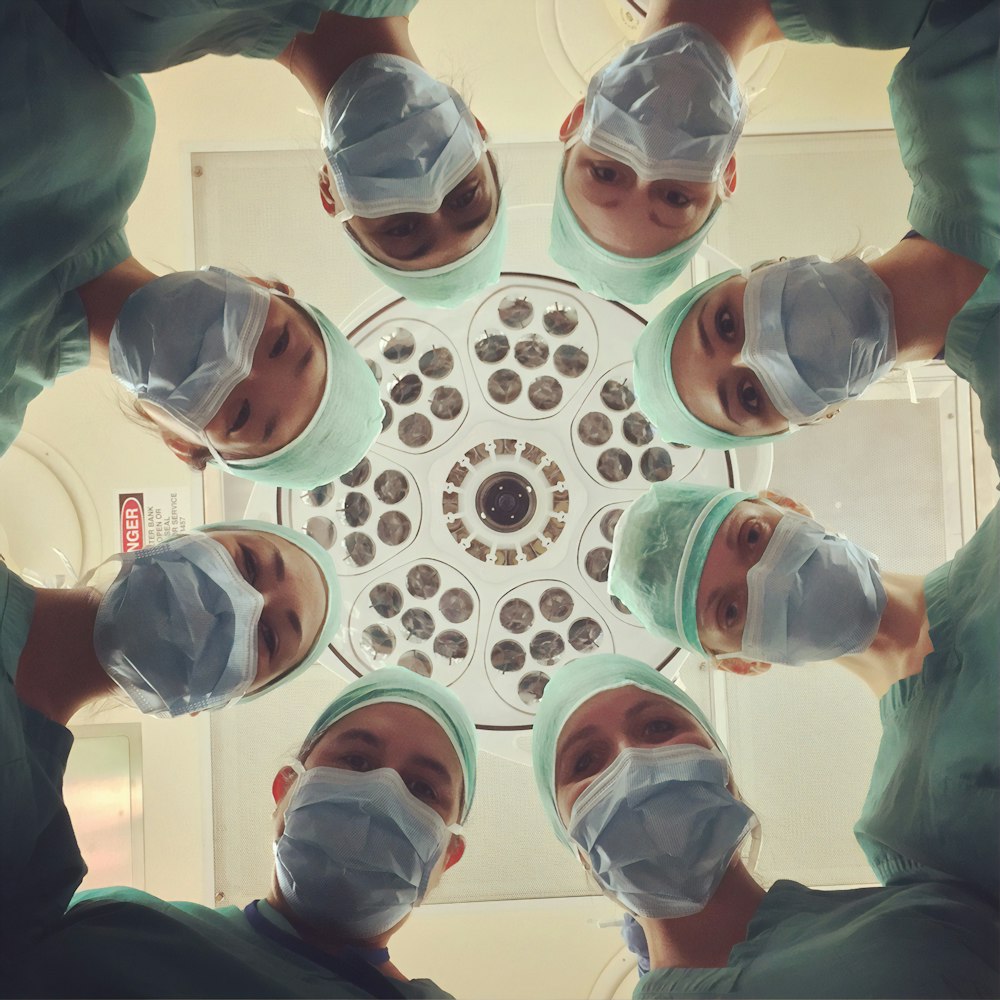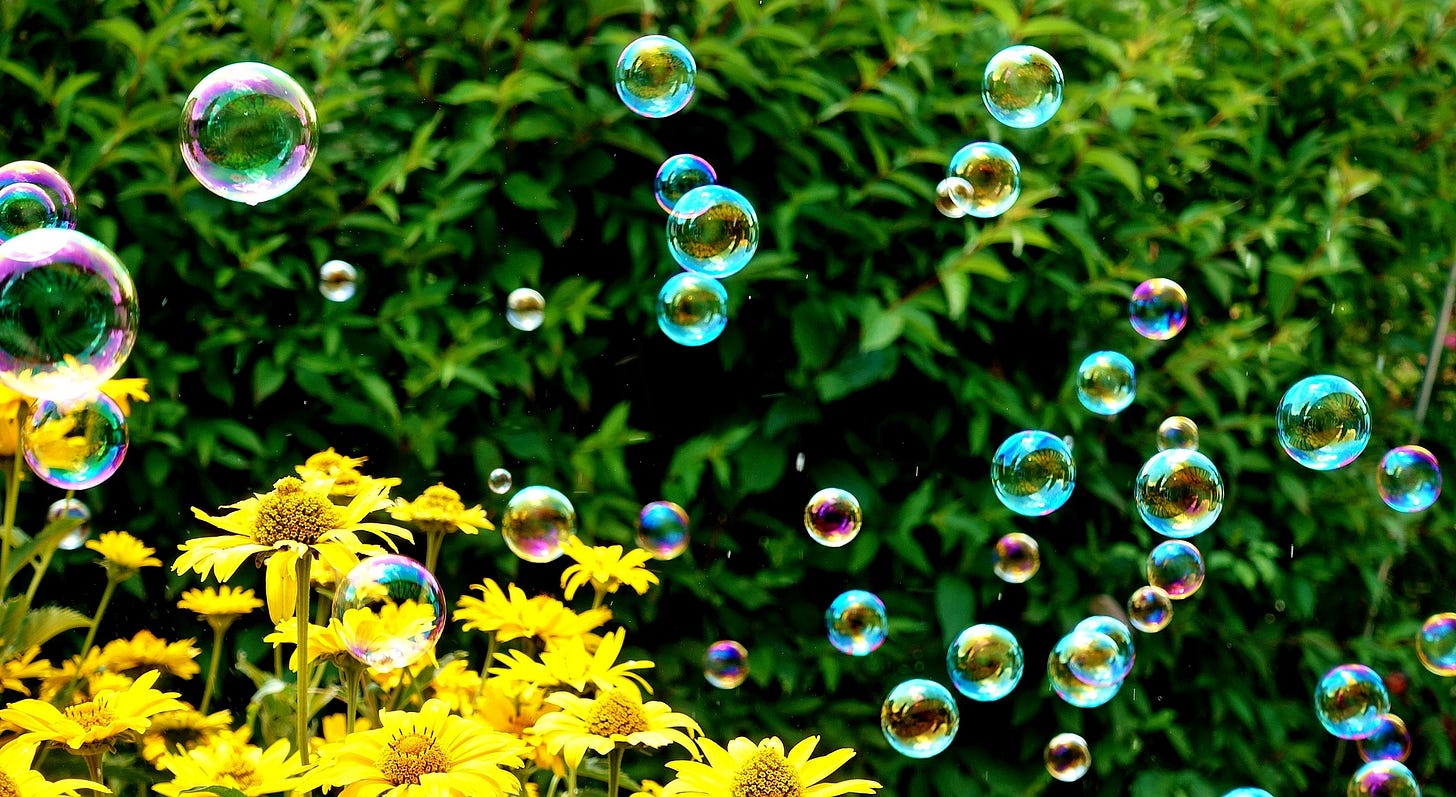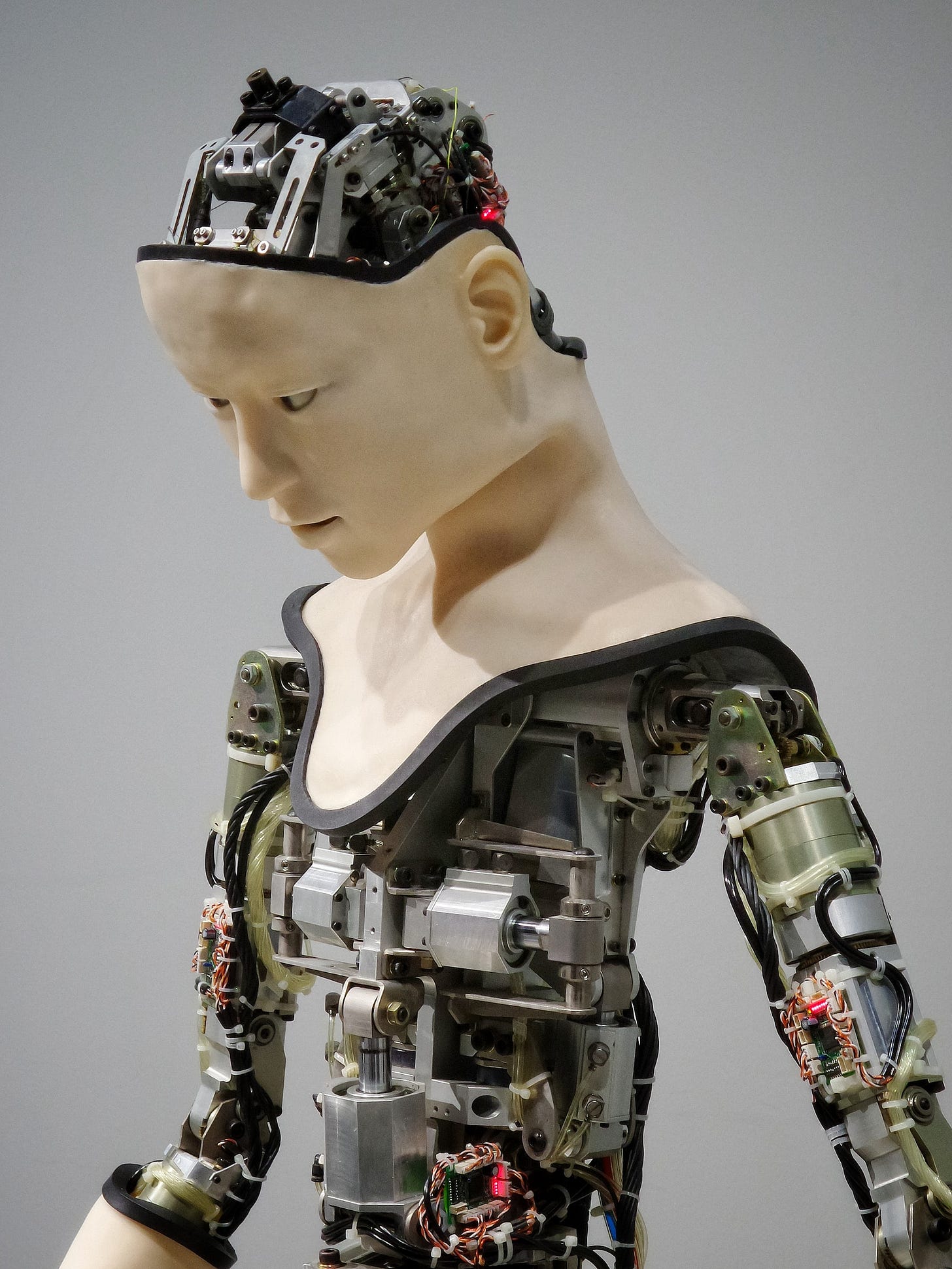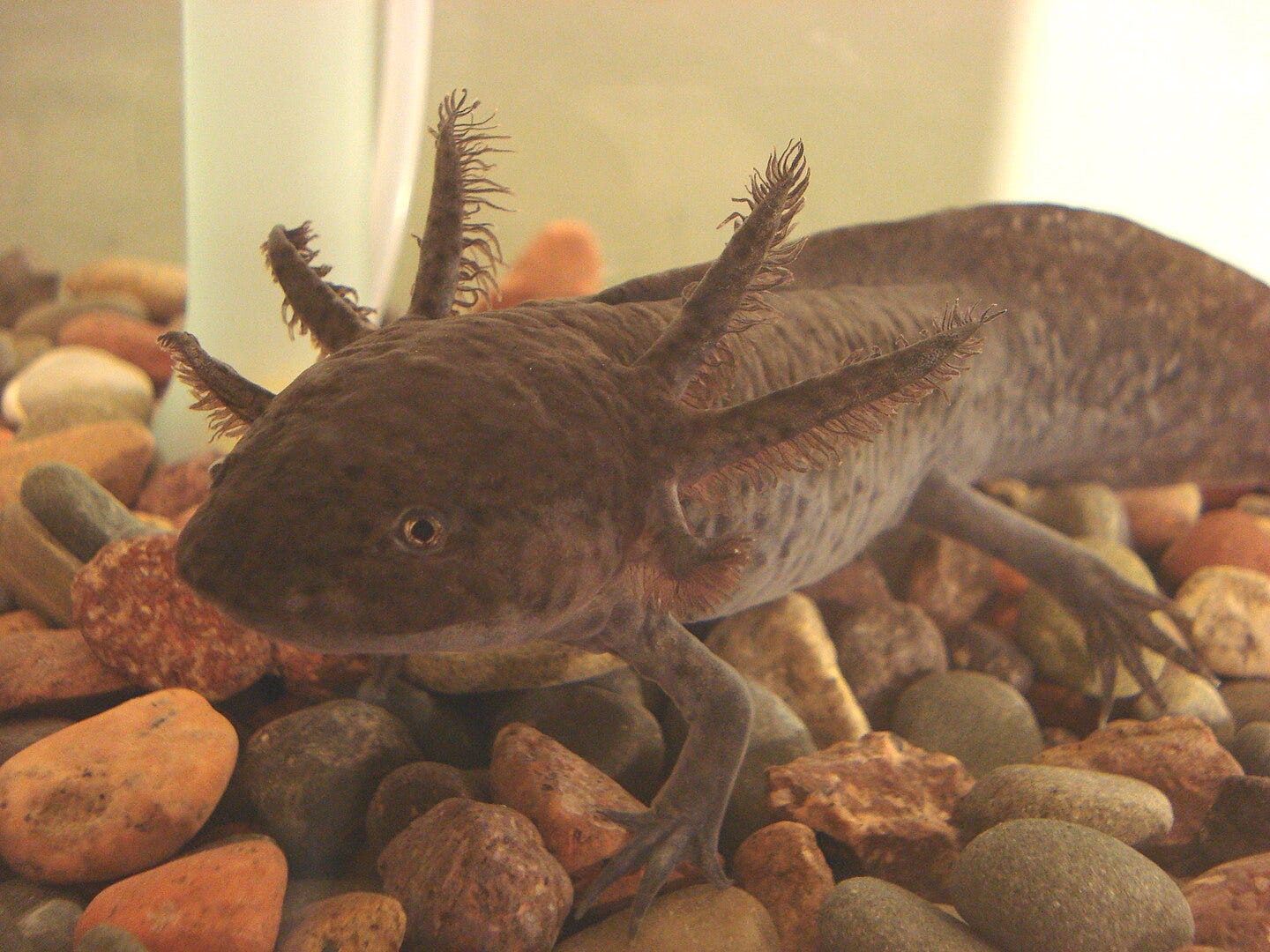In these changing times physical and mental health takes on an even more prominent role. Our society appears to function on the premise that when things are going fine we can let our body and soul gather dust and only start looking after our system when something is not working well. Or not even then. We simply wait until wheeled into the operating room.
Source: National C. Institute, Unsplash
The medical profession is currently an enthusiastic supporter of this attitude; it focuses doggedly on disease. The attention is on what not to have. Arriving to the clinic you walk through a door called patient admission. The word patient literally means ‘sufferer’. Then you have to fill out a form called patient information with an entry that says patient name. This is where your name goes even if you are the incredible hulk and came for an athlete’s check up. Then you patiently wait for your turn. After finishing three chapters in your book you get bored and look around in the room to see posters vividly depicting all kinds of diseases and informing you of your patients’ rights. Sufferers’ rights, isn’t that a strange construction? Given the suggestibility of the human mind, the question arises as to what is actually happening there. What’s the aim in the ward, health or disease?
Source: irinakeinanen, Pixabay
I know it's a wild idea, but could it be more useful, even intriguing, to focus on healing and health? We could begin by establishing and creating the conditions of vigorous health and well-being. Some of the things that come to mind are clean water, clean air, clean (chemical-free) food. Harmonious human relationships. Plenty of physical activity, ideally in mother nature. This directly feeds into spirituality, the connection with the Whole, experiencing our divine nature. Do you have that at 6:30 in the morning when the alarm rings? There is also the question of whether the work you do is creative and fulfilling or more akin to slavery. You don't have to be Michelangelo, kneading dough to make sensational bread, or teaching someone something can lead to intense satisfaction.
The lofty goal of ever more robust health could be most easily achieved in a well-designed system for the whole of society. There are places and times when this happens. When it doesn't, we can set out individually, meeting up with others along the way. Eventually we can form small groups that assist each other. On the longer term we can create connections with other groups. It’s like transforming the ocean drop by drop. In the end we could even arrive at a real health service, where people are treated as whole living beings.
I imagine there might have been a system like that in ancient India. With health practitioners helping to form people's lifestyles, understanding the connection between emotions and physical conditions, and having the knowledge to heal if necessary. I think that is a long way off at the institutional level, but if we don't start moving in that direction now, we will never arrive there. We can begin with ourselves, our bodies, our souls, our emotions, our relationships. We could, for example, examine all these areas and initiate some positive changes that are easy to make.
The first question is your lifestyle. To give just one example, of all mammals, Homo sapiens is one of the best long-distance runners. We’re not great sprinters, we cannot compete with most quadrupeds, but over long distances we can outrun gazelles. One of the best ways to keep our bodies, hearts and muscles in an optimal state is prolonged, dynamic movement. How many hours a day do you spend hunched over your screen? Oh, but we've become so lazy. You know, when we were six, we were dumped into school desks in order to turn us from little balls of energy to obedient zombies. And who has the time to go out there and move every day?
Interestingly, you do have the time to sit in the traffic jam every day. Yeah, but I've got a family and I've got to go shopping! What do you mean to go to the market by bike? I have never understood why so many people deprive themselves of the experience of speed achieved by their own muscles. The thrill of cruising, the satisfaction of getting off your bike and feeling every cell alive. The touch of the sun, the wind, the rain on your skin. Not to mention the secret pride that you've made it up the slope again with these gargantuan baskets full of stuff. Compared to you Gilgamesh was a wimp. Oh, you're here already? Wasn't it hard to cycle up the hill? Naw, I just brought a few minor items.
Source: Gerhard Lipold, Pixabay
In the meantime, you also had to watch out for traffic. Gosh, your reflexes and senses also got a boost. Could it be that not only your thigh muscles, but even your brain will remain functional at ninety?
In my language the word health literally means ‘wholeness’. (There is also another word for wholeness in a more figurative sense, just in case you wondered.) And indeed, health encompasses treating our lives as a whole instead of separate parts and activities. (Want muscles? Push some iron.) One action can fulfill several aims. And, contrary to what advertising suggests, the less comfortable choice often feels much better.
Another aspect of wholeness is how we think about ourselves. A fashionable idea is to imagine the human body as a machine. Your blood vessels got clogged? Get some vein cleaner. And bring along those plastic tubes, Bob, we'll need to replace a piece here. Damn, this whole section needs to be changed.
Source: Possessed Photography, Unsplash
Meanwhile, many researchers are increasingly talking about something called a mind-body or bodymind. What if we put aside the image of the robot and find something more interesting, say that of an axolotl? This animal is a great example of a rare phenomenon called neoteny. It retains certain juvenile characteristics throughout its life. Under normal circumstances, axolotls do not transform into air-breathing salamanders with lungs, but remain gilled aquatic animals throughout their life, and reproduce as such. Even more exciting is that they can fully regrow lost organs and body parts, such as legs, tail and even parts of their heart and brain.
Okay, but we're not axolotls, you say. Yes, we are. For a start, humans are also neotenous. Our heads resemble those of baby apes: big skull, little jaw. Our jaws stop growing at an early stage of development. The other similarity is even more exciting: our ability to regenerate. Although we can't regrow limbs at the present, it's quite astonishing how our broken bones mend on their own or how our wounds heal. We're much more like an axolotl than a machine.
What if we removed the image of the machine from our minds and replaced it with that of the axolotl?
Source: Esteban Acquaviva - https://commons.wikimedia.org/w/index.php?curid=3470452
The axolotl is a mysterious creature, but when you think about it, so are we. You can put a photo of all those times you've cured yourself of something next to the picture of the axolotl. Sure, you can't fit them all in, and a lot of them you never noticed because they happened in your sleep, but let's hang a few dozen of the most emblematic ones in the gallery your mind. Along with the best moments of vigorous health. When focusing on desirable outcomes, they become easier to achieve.
The case of the axolotl is quite intriguing. Could it really be possible to regrow a lost limb?
Well, for now that's science fiction, just as the submarine was in Jules Verne's time. Alluring, seemingly unattainable. What could be a way to start approaching it? It also puts things into perspective, because there is a lot we can do for our health now. Pick one thing that you know is good for you. Imagine where you will be in ten years if you don't do it. Now imagine where you will be if you do do it.
No one else can choose for you. But we both know that if you choose the second one, it’s not only health that you’ll gain, but a life that’s more interesting.






